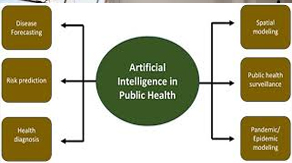Communication is the backbone of any relationship. The words we choose can build bridges or create barriers. While expressing feelings and thoughts is essential, there are certain phrases that can deeply hurt our partners and potentially damage the relationship. In this comprehensive guide, we will explore things you should never say to your partner, offering insights into why these words can be harmful and how to cultivate a healthier dialogue.
1. “You always…” or “You never…”
Using absolutes like “always” or “never” can feel accusatory and dismissive. These phrases imply that your partner has a consistent pattern of behavior that is negative, which can lead to defensiveness. Instead of fostering constructive dialogue, they can escalate conflicts.
Why It’s Harmful:
- Defensiveness: Your partner may feel attacked and respond defensively.
- Inaccuracy: These statements often exaggerate the situation and can lead to misunderstandings.
Better Alternatives:
- Focus on specific instances: Instead of saying “You never listen to me,” try, “I felt unheard during our conversation last night.”
2. “Why can’t you be more like…”
Comparing your partner to someone else, whether it’s a friend, family member, or even a celebrity, is damaging. This phrase undermines your partner’s individuality and can make them feel inadequate.
Why It’s Harmful:
- Insecurity: It can lead your partner to question their worth and feel insecure in the relationship.
- Resentment: Constant comparisons can breed resentment and distance between partners.
Better Alternatives:
- Highlight their unique qualities: Instead of comparing, express appreciation for what makes them special, like “I love how you handle difficult situations with grace.”
3. “I wish I had never met you.”
This statement can be devastating. It suggests that you regret your entire relationship, which can crush your partner’s self-esteem and trust in you.
Why It’s Harmful:
- Betrayal of Trust: It implies a lack of commitment and can lead to feelings of betrayal.
- Emotional Damage: Such words can inflict lasting emotional pain.
Better Alternatives:
- Express frustration without absolutes: Instead of “I wish I had never met you,” you might say, “I’m really frustrated with how we’re handling this situation.”
4. “You’re just like your mother/father.”
Bringing in family dynamics can be tricky. This phrase can feel like a personal attack and may evoke past traumas or unresolved issues. It often implies that you dislike a particular trait in your partner by connecting it to their family.
Why It’s Harmful:
- Triggering Past Issues: It can reopen old wounds and create unnecessary conflict.
- Diminishing Individuality: It reduces your partner to a stereotype based on their upbringing.
Better Alternatives:
- Address behaviors, not families: Instead of saying, “You’re just like your father,” focus on specific actions: “I feel frustrated when decisions are made without discussing them together.”
5. “You’ll never change.”
This statement conveys hopelessness and can be incredibly discouraging for your partner. It implies that there’s no possibility for growth or improvement, which can be demotivating.
Why It’s Harmful:
- Stagnation: It may lead your partner to believe that efforts for self-improvement are futile.
- Negative Cycle: Such statements can perpetuate negative behaviors rather than encourage change.
Better Alternatives:
- Encourage growth: Try saying, “I believe you can grow from this experience, and I’m here to support you.”
6. “I can’t stand you.”
This phrase is often said in the heat of the moment but can have lasting repercussions. It suggests an inability to tolerate your partner and can create deep emotional wounds.
Why It’s Harmful:
- Feeling Rejected: It can make your partner feel utterly rejected and unloved.
- Breaking Trust: Such statements can fracture trust and intimacy.
Better Alternatives:
- Express feelings constructively: Instead of “I can’t stand you,” say, “I’m feeling really overwhelmed right now, and I need some space.”
7. “You’re being dramatic.”
Dismissing your partner’s feelings by labeling them as “dramatic” can invalidate their emotions. This phrase implies that their feelings are not worth considering and can lead to feelings of isolation.
Why It’s Harmful:
- Invalidation: It can make your partner feel unheard and unimportant.
- Emotional Suppression: It discourages open expression of feelings.
Better Alternatives:
- Acknowledge feelings: Instead of dismissing their feelings, try, “I can see that you’re really upset. Let’s talk about what’s bothering you.”
8. “I’m fine.”
While not inherently harmful, saying “I’m fine” when you’re not can be misleading. It often leads to misunderstandings and prevents genuine communication about feelings.
Why It’s Harmful:
- Misleading Signals: It sends mixed messages and can create confusion.
- Resentment: Bottling up feelings can lead to resentment over time.
Better Alternatives:
- Be honest about feelings: Instead of hiding your emotions, communicate openly: “I’m feeling a bit overwhelmed and need to talk about it.”
9. “You should be grateful for what you have.”
While gratitude is essential in a relationship, this statement can come off as patronizing. It implies that your partner is unappreciative and can diminish their feelings of discontent or struggle.
Why It’s Harmful:
- Shaming: It can make your partner feel guilty for having negative feelings.
- Suppressing Emotions: It discourages open discussion about needs and desires.
Better Alternatives:
- Encourage open dialogue: Instead of saying “You should be grateful,” express your feelings: “I appreciate what we have, but I also understand you have your own concerns.”
10. “You’re ruining everything.”
This phrase places the blame solely on your partner, which can feel overwhelming and lead to defensiveness. It implies that their actions are the sole reason for problems in the relationship.
Why It’s Harmful:
- Blame Game: It encourages a cycle of blame instead of working together to find solutions.
- Isolation: It can make your partner feel isolated and unappreciated.
Better Alternatives:
- Collaborative Language: Instead of blaming, use collaborative language: “I think we both need to work on this situation together.”
11. “I don’t love you anymore.”
This statement can be a devastating blow. It conveys finality and can lead to feelings of hopelessness. Even if said in anger, it can leave lasting scars.
Why It’s Harmful:
- Threatening Stability: It threatens the foundation of the relationship and can lead to breakdowns in communication.
- Emotional Trauma: Such words can inflict deep emotional pain.
Better Alternatives:
- Express current feelings without finality: Instead of saying, “I don’t love you anymore,” try “I’m feeling disconnected right now, and I’d like to work on that together.”
12. “You’re just not trying hard enough.”
Implying that your partner isn’t putting in enough effort can be disheartening. It disregards their struggles and may lead to feelings of inadequacy.
Why It’s Harmful:
- Undermines Efforts: It can make your partner feel like their efforts aren’t acknowledged or appreciated.
- Creates Pressure: It places undue pressure on them to perform or change.
Better Alternatives:
- Encourage partnership: Instead of criticizing effort, say, “Let’s brainstorm together on how we can both improve in this area.”
13. “I’m not the problem; you are.”
This statement shifts the blame entirely to your partner, denying your own role in the relationship dynamics. It can create a toxic atmosphere of blame and defensiveness.
Why It’s Harmful:
- Avoids Accountability: It can prevent honest self-reflection and accountability.
- Deepens Conflict: It escalates arguments rather than resolving issues.
Better Alternatives:
- Self-Reflection: Try, “I think we both have things we can work on. Let’s discuss how we can improve together.”
14. “You make me feel…”
While expressing how someone’s actions affect you can be important, framing it this way can shift responsibility onto your partner. It can imply that your feelings are solely their fault.
Why It’s Harmful:
- Blame: It can lead to defensiveness and conflict.
- Discourages Dialogue: It may prevent constructive discussion about feelings.
Better Alternatives:
- Own your feelings: Instead of “You make me feel,” say “I feel upset when…”
15. “I need space.” (Without context)
While needing space is a valid request, delivering it without context can leave your partner feeling rejected and confused. It can seem like a sudden withdrawal of affection.
Why It’s Harmful:
- Emotional Distance: It can create feelings of abandonment.
- Lack of Clarity: Without explanation, your partner may struggle to understand the reason behind your need for space.
Better Alternatives:
- Provide context: Say, “I need some time to gather my thoughts. Can we talk about this later?”
Conclusion
Healthy communication is essential for nurturing relationships. The words we choose can either strengthen bonds or create rifts. By being mindful of what we say and how we express our feelings, we can foster a supportive environment where both partners feel valued and understood. Avoiding harmful phrases and opting for constructive dialogue can lead to a deeper emotional connection and a more fulfilling partnership. Remember, the goal of communication should always be to build each other up, not tear each other down. By focusing on empathy and understanding, we can navigate the complexities of relationships with grace and care.


